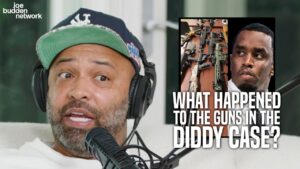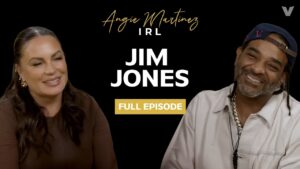In a wide-ranging conversation, the Joe Budden Podcast crew dove deep into the media circus surrounding Sean “Diddy” Combs, particularly the heavily publicized raid on his L.A. home and the shifting narratives that followed.
The hosts started by revisiting the initial reports that emerged after the raid. Early headlines alleged the discovery of assault rifles with defaced serial numbers and unregistered weapons, but they pointed out that this narrative quietly disappeared. Later coverage claimed that all weapons were legally registered, leading the podcast crew to question the reliability and motives of early reporting.
They discussed how these early stories may have been intentionally planted to sway public opinion and that, at times, federal and state investigators react under pressure from public outrage, especially after lawsuits like the one filed by Cassie. They drew parallels between media manipulation and conspiracy theories, including one suggesting Diddy’s legal troubles were tied to his alcohol brand disputes — painting him as a target rather than a perpetrator.
A particularly controversial topic was the claim that lube found in Diddy’s home allegedly contained chemicals similar to date-rape drugs. The hosts noted that none of these dramatic allegations surfaced during the actual trial, further fueling their belief that much of the spectacle was “media theater.”
The conversation turned philosophical as the crew blamed society’s obsession with true crime and public downfall. The group referenced past scandals, including Kobe Bryant’s trial, suggesting that even small towns exploited public fascination for economic gain.
They also tackled the public’s inconsistent stance — how some who demanded Diddy’s punishment flipped opinions once the major charges, such as RICO, didn’t stick. The hosts acknowledged that societal bias and gender experiences shaped public sentiment, especially for women who may view Diddy as a stand-in for broader patterns of abuse.
As for what’s next, opinions differed. Some suggested Diddy should lay low and focus on family, emphasizing his history as a driven businessman who can bounce back. Others pointed out that the domestic violence video — in which Diddy was seen assaulting Cassie — would likely remain a permanent stain on his brand, regardless of whether criminal charges stick.
The group agreed that Diddy might pursue “reputation repair,” possibly through rehab, counseling, or aligning with domestic violence organizations. But not all were convinced of his sincerity, recalling his initial public response to Cassie’s lawsuit — one they felt lacked accountability and sounded more like PR damage control.
A debate emerged over whether Diddy could truly change, with some arguing that sociopathic traits can’t be undone. But others pushed back on the armchair diagnoses, calling out the trend of labeling celebrities with mental disorders based on public behavior.
Ultimately, the hosts circled back to the larger issue: our collective obsession with drama, downfall, and public punishment. They argued that these high-profile scandals are less about justice and more about entertainment — a mirror reflecting what society values most: spectacle.






